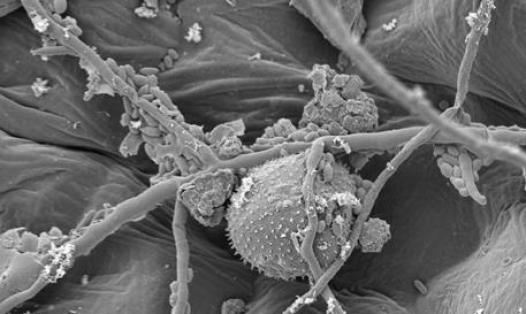


This project will identify novel secondary metabolites from entomopathogenic fungi (EPF) that have many potential applications. EPF produce unique entomotoxic or immuno-regulatory compounds but only transiently and in low concentrations during infection, so are difficult to study. The project will develop culturing techniques to optimise metabolite production that facilitate structural elucidation and biological activity testing. The genes responsible for metabolite production will be identified using DNA and RNA sequencing. This will enlighten our understanding of EPF modes of infection and accelerate their development for use in agriculture and medicine. This project is split equally between NRI and RBG Kew.